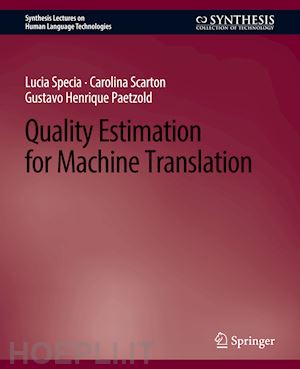Lucia Specia is a Professor of Language Engineering in the Department of Computer Science at the University of Sheffield. Her research focuses on various aspects of data-driven approaches to multilingual language processing with a particular interest in multimodal context models for language grounding that has applications in machine translation, quality estimation, and text adaptation. She is the recipient of an ERC Starting Grant on multimodal machine translation (2016-2021) and has been involved in a number of other research projects on machine translation (EC FP7 QTLaunch-Pad and EXPERT, EC H2020 QT21 21, CRACKER) and EC H2020 text adaptation (SIMPATICO). Before joining the University of Sheffield in 2012, she was Senior Lecturer at the University of Wolverhampton (2010-2011) and research engineer at the Xerox Research Centre, France (2008–2009). She received a Ph.D. in Computer Science from the University of Sao Paulo, Brazil, in 2008.
Carolina Scarton is a Research Associate at the University of Sheffield and a member of the Natural Language Processing Group. She holds a Ph.D. on Quality Estimation of Machine Translation from the University of Sheffield (2017) and her research interests are quality estimation, text simplification, evaluation of NLP task outputs at the document level, and readability assessment. Currently, Dr. Scarton works for the EC H2020 SIMPATICO project, where she develops approaches for sentence simplification. Previously, she was a Marie Skłodowska-Curie Early Stage Researcher working for the EXPERT project on the topic of machine translation at the University of Sheffield (2013-2016).
Gustavo Henrique Paetzold is an Adjunct Professor at the Federal University of Technology - Parana. He holds a Ph.D. from the University of Sheffield (2016). His main research interests are text simplification, psycholinguistics, quality estimation, and machine learning applied to natural language processing. Prior to joining the Federal University of Technology, Dr. Paetzold worked as a Research Associate at the University of Sheffield on the EC H2020 SIMPATICO project, where he developed approaches for lexical simplification (2016-2018).











